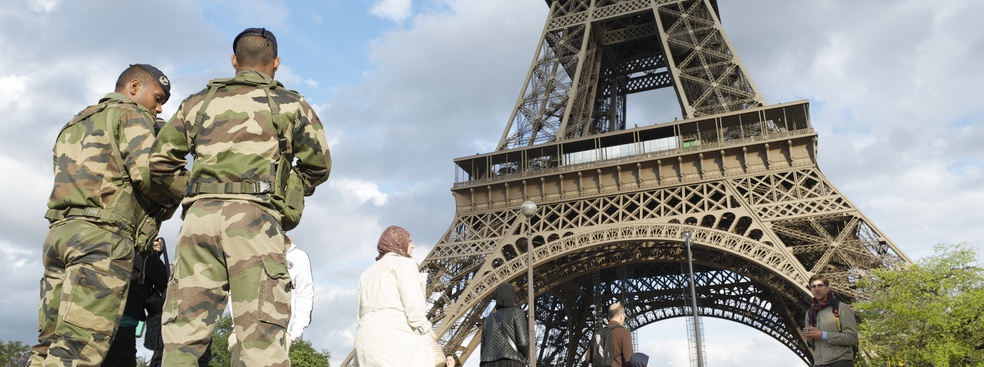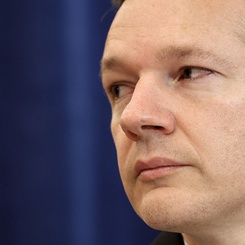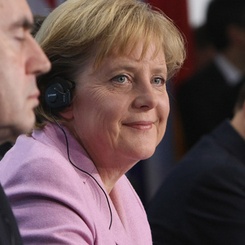Paris: The Charlie Hebdo and Hyper Cacher attacks, January 2015
Syria an Iraq: Massacre of hostages by ISIS
Nigeria: The destruction of entire villages by Boko Haram
Paris: The ISIS suicide attacks of November 13, 2015
Faced with such extreme terror, is there room for negotiation?
The repulsiveness of these acts seems to negate any prospect of negotiating with the terrorist organizations that committed them. But beyond this moral refusal, which could stand on its own, what analysis can we provide? I have three minutes to explain: the three conditions that any negotiation needs to meet, and the barriers that can block these conditions when faced with terrorist organizations.
First condition of negotiation: an expected return on investment
A negotiation can only take place if those parties present make the following bet: that they can better meet their goals by coming to a negotiated agreement, than acting unilaterally.
Here, this condition is not met, neither for Daech nor Boko Haram, who do not see the need to negotiate as their violence on the ground until now has allowed them to consolidate their positions and fulfill their motivation: generate fear. On the opposite side, the international coalition against Daech intends to win on the ground. To negotiate would be to acknowledge that we don’t think we’re winning. There is a strategic refusal on both sides to negotiate.
This refusal can be reversed only if the two camps reach what Zartman called a Mutually Hurting Stalemate: when the status quo becomes too expensive for both.
But even then, each side would need to identify representatives.
This is the second condition: bringing together the representatives
Any negotiation takes place between persons authorized to negotiate on behalf of their respective sides.
This requirement is hampered by at least two barriers:
- First, these terrorist organizations have nothing to do with the structured "bureaucratic" political terrorism of the 1980s (such as ETA), where leaders have control over the base and can identify official representatives. The terrorist organizations we are dealing with today are loose networks of multiple groups with changing allegiances; negotiating with one does not guarantee that all will follow.
- Above all, the mere fact that a state is negotiating with a non-state entity grants it a status, giving it a respectability and impacting public opinion. In history, France has long been reluctant to negotiate with the FLN [in Algeria], and Israel has long refused to negotiate with the PLO.
For negotiations to take place without generating the benefits of recognition for a particular actor, they must take place in the greatest secrecy. This was the case, for example, during the Oslo talks between the Israelis and Palestinians.
So could secret negotiations happen?
Finally, the third condition: accept the negotiation process itself
This process is based on the invention of mutually satisfactory solutions coupled with the exchange of reciprocal concessions. Still, there has to be what we call a zone of possible agreements: an area within the constraints of each, in which can be found a compromise.
In the case before us today, this condition is not verified. At the individual level, the Kouachi brothers were in a suicidal logic that left no room for negotiation. This is what we can call a suicidal refusal to negotiate. Similarly, the terrorist actions of al Qaeda or Daech do not aim to open up negotiations. They are not designed as levers to obtain negotiated concessions.
Conversely, the allied powers do not intend to compromise on fundamental values. The respect for human life is not negotiable. Freedom of the press is not negotiable.
Moral refusal on one side, suicidal refusal on the other side, and strategic refusal for all: several obstacles combine to exclude any negotiating logic in the struggle against extreme terrorism.
Further Reading:
- A. Colson, « La négociation au risque de la transparence », Négociations, 2008
- G. O. Faure & W. Zartman (dir.), Negotiating with Terrorists (Routledge, 2011)
- P. Lempereur & A. Colson, Méthode de négociation (Dunod, 2010)
- Ch. Thuderoz, Petit traité du compromis (PUF, 2015)
- www.essec-irene.com









